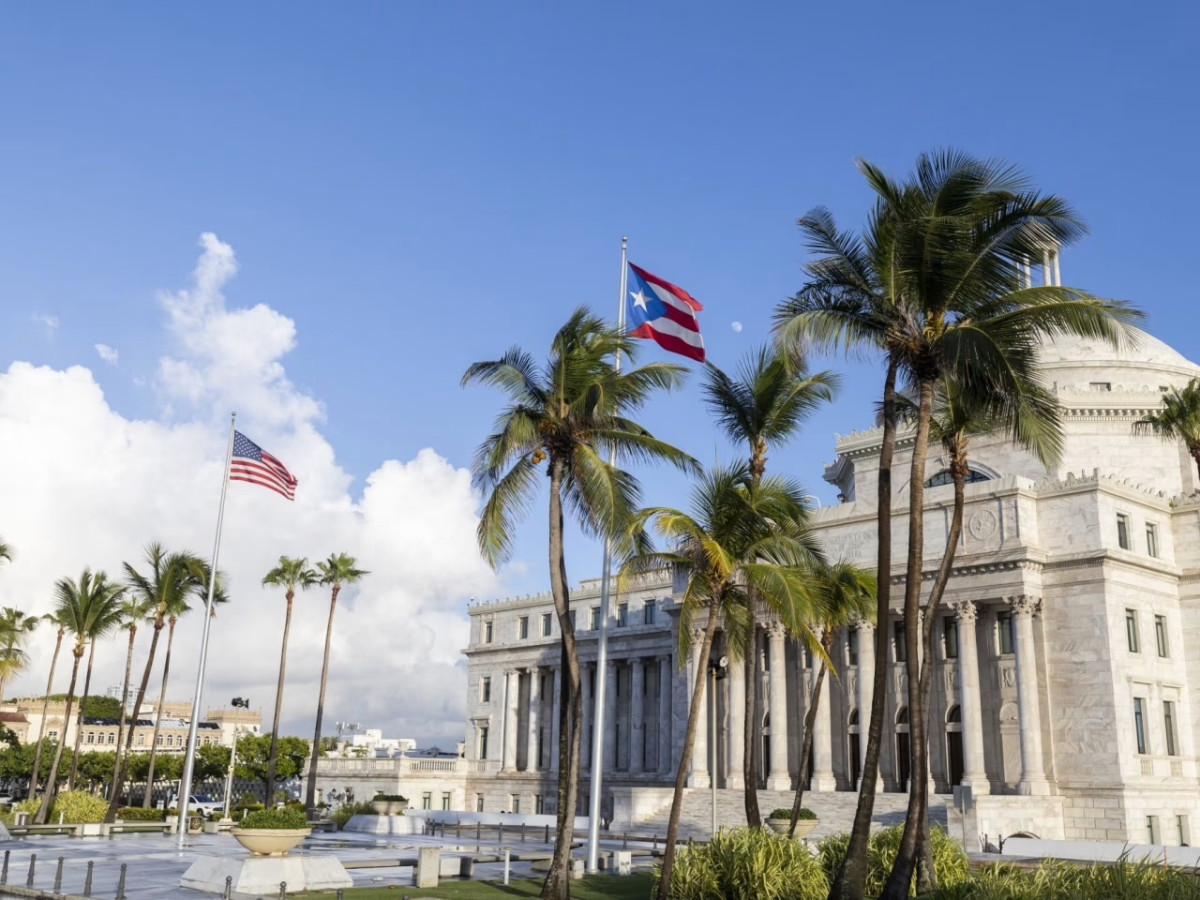OPINION: Puerto Rico’s Democrats Like Their Commonwealth Status

Should Puerto Rico become a state, as some prominent national Democrats have suggested, or a sovereign country, as others have floated? Most of Puerto Rico’s Democrats want neither statehood nor independence. They want to keep and improve the island’s current status as a commonwealth.
I represent Puerto Rico in the U.S. Congress. I ran under the local, pro–commonwealth Popular Democratic Party, promising to caucus with Democrats on a platform focused more on the island’s pressing needs than its political status. Island residents don’t divide along traditional Democratic–Republican lines; instead, they generally split into local parties based on their preference for statehood, independence or commonwealth. Within these parties, Puerto Ricans tend to side with either Democrats or Republicans, because although Puerto Ricans don’t vote in U.S. general elections, they do vote in presidential primaries.
Unlike mainland Americans, island-based Puerto Ricans have a net positive view of the Democratic Party. Among those with positive feelings, according to a recent Hart Research poll, 42% support the current commonwealth status, 29% support statehood, 11% favor free association—also called “sovereign commonwealth”—and 11% support independence. Nearly two-thirds of island Democrats and a majority of residents agree with the following three statements about the island’s relationship with the U.S. First: “Puerto Rico is not going to be independent because a majority of Puerto Ricans do not want independence.” Second: “The United States will not admit Puerto Rico as a state in the near future.” Third: “We need to work with the Commonwealth and make it better because it is the only real option that we have.”
My colleagues in Congress ask why I back commonwealth status. I always answer with two words: taxes and culture. Puerto Rico residents are exempt from most federal income-tax laws, although they contribute to Social Security, Medicare and other programs. This allows the government of Puerto Rico to levy taxes of as much as 33% on income above $61,500 and keep most of the revenue generated. If we had to pay both federal and state income tax, we would fall deeper into bankruptcy. We would need to nearly double our total income-tax burden or lower our state income tax to accommodate federal income taxes. Both options are fiscally untenable.
Stateside party leaders dream of statehood, but taxes and culture make the status quo preferable.
Although proud American citizens, most Puerto Ricans view themselves as a distinct nationality. The relationship with the U.S. is similar to that between Quebec and Canada or Catalonia and Spain. That national identity was on display for millions during Bad Bunny’s recent concert residency in Puerto Rico, as it is every four years when the island competes with its own team at the Olympics.
Then why not pursue independence? Because Puerto Ricans value their U.S. citizenship, close ties with the mainland, serving in the armed forces and contributing to the American economy.
Still, the status quo isn’t perfect. The current relationship is flawed and should be modified to strengthen the island’s economic development and cure its democratic shortcomings. Congress has rejected proposals to broaden the island’s autonomy under the commonwealth, such as the 1975 Compact of Permanent Union and the 1989 Enhanced Commonwealth formula.
Rather than promote statehood or independence as they’ve done in recent years, stateside Democrats should champion a fair process of self-determination for Puerto Rico. Some will say that Puerto Ricans already voted for statehood, but that’s misleading. In the last nonbinding referendum, the pro-statehood New Progressive Party excluded the commonwealth as an option on the ballot. Naturally, that design inflated support for the remaining options. But when counting all the ballots, including blank or protest ballots, support for statehood dropped below 50%. That’s more a stalemate than a mandate.
In the meantime, stateside Democrats and policymakers in general should focus on providing concrete solutions to Puerto Ricans’ everyday problems. The U.S. government can strengthen the commonwealth by accelerating the disbursement of reconstruction funds for the island’s energy grid. Congress should approve new tools for economic development, such as those outlined in the Supply Chain Security and Growth Act of 2025, to further the U.S. nearshoring agenda and leverage the island’s potential as a pharmaceutical hub. Congress should also guarantee island residents equal access to federal benefits—Supplemental Security Income, the Supplemental Nutrition Assistance Program, Medicaid and Medicare.
As Puerto Rico’s voice in Congress, I assure you that’s what the people want.